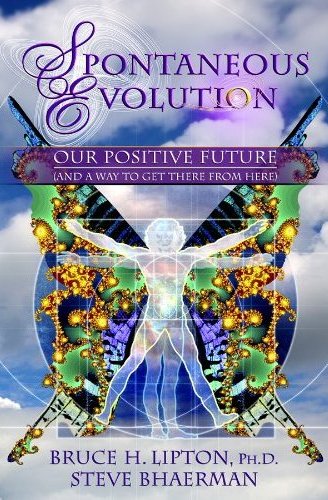The Biology of Belief: Unleashing the Power of Consciousness, Matter & Miracles by Bruce H. Lipton (Hay House, 2008; $29.95)
“What if everything you know is wrong?” So asks biologist Bruce Lipton in Biology of Belief, which illustrates how recent scientific discoveries, most notably those of quantum physics and the human genome project, require that we shift our thinking around health care.
The book illustrates how current medical treatments and research are based in a set of assumptions that don’t explain much of what health care professionals witness on a daily basis such as placebo effects, spontaneous remissions and the effectiveness of alternative energy-based healing practices (e.g, acupuncture, healing ceremonies, etc.). Lipton contends that around one-third of illnesses are healed through alternative methods. He furthermore cites studies which conclude that illnesses derived from medical treatments, side effects, complications, human error, etc., are a leading cause of death in the U.S.
Lipton makes a solid case for concluding that our health-care system is built on an understanding that has now been proven inaccurate. Yet for a variety of reasons, including the fact that profits are at risk, there is resistance to accepting the implications of scientific findings. He is careful not to assert that all medical knowledge is wrong. He only suggests that medical practice needs to be based in new knowledge, which opens up whole new avenues of treating and preventing disease.
In the new paradigm, matter is actually comprised of both particles and energy, entangled with each other. Furthermore, it is energy that determines the behaviour of particles. To better understand this point, Lipton asks us to imagine iron shavings on a piece of paper moving and forming patterns in response to a magnet held underneath. The greatest influence on how our cells and even our genes behave is the energy of our perceptions, thoughts and feelings about our social and physical environments.
Obviously, our cultural and social beliefs also impact our personal biology and behaviour. Hence the second book, Spontaneous Evolution, looks at the implications of new and emerging science to argue for a shift in thinking and behaviours that will better enable our chances to survive, thrive and enjoy the human experience of life on Earth.
With an analysis of capitalism that would rival that of any social activist, Lipton and political scientist Bhaerman describe how our social and economic systems are biologically (and in every other way) unsustainable because they’re based on an incorrect understanding of how we and the world work. Drawing on significant scientific evidence that co-operation, rather than the competition of Darwinism, underlies the success of life on the planet, the “material” world and even the earth itself, we come to understand that everything in the known Universe is actually connected by, and part of, an “energy field.” Interestingly, the authors use the words energy and spirit interchangeably and give due respect to ancient “animist” cultures for having long ago determined what cutting edge science has recently figured out.
A significant amount of research is cited to substantiate the conclusion that we humans impact our personal development, each other and the environment in “energetic” ways, through feelings, thoughts and actions. The more of us there are directing our energies in a particular way, the greater the impact. Along with a proposal on how to make the necessary shifts, the authors further look at the science-based implications of what might make the most effective, practical and rewarding ways of organizing human communities, political systems and economies. In doing so, they posit a set of ideas for nurturing human potential and relationships that honours Indigenous, spiritual and scientific knowledges around the globe.
Yet racialized, feminist and Indigenous readers will be frustrated by deference paid to the “Founding Fathers” of the United States for their never-fully-realized vision, considered radical in the historical context. Although the authors readily concede that these men were patriarchal slave owners who based many of their ideas on Haundenosaunee (Iroquois) knowledge, while at the same time excluding Indigenous peoples from the definition of human in the Declaration of Independence. Unfortunately, one cannot assume the writers’ ignorance since there is respectful and accurate detail in the book on how the Haundenousaunee and other Indigenous peoples influenced philosophers of The Enlightenment as well the Colonial Founders.
Another quibble might be found in the rendition of human history, where some aspects of Western Europe’s social evolution are generalized as applicable to all peoples.
Nevertheless, none of the occasional disappointments in analysis overturn the basic premises of the books, which effectively argue that as individuals, communities and a species we need to recognize that we are in a relationship and act like it. The authors conclude in the latter book that, “love is not some mushy-gushy sentiment but the vibrational glue that will help build” a better future.
When a critical mass of people truly own this belief in their hearts and minds and actually begin living from this truth, our world will emerge from the darkness in what will amount to a spontaneous evolution.




